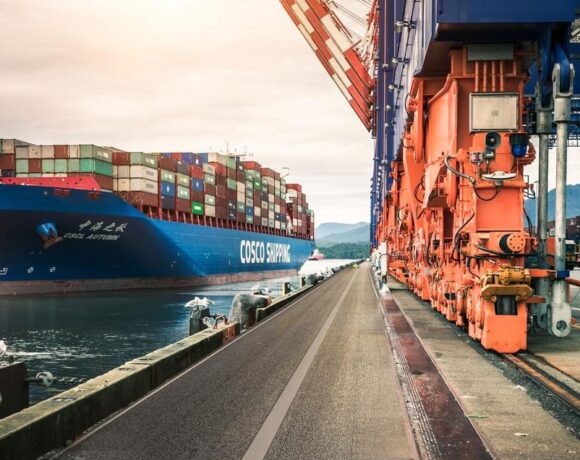The plastic waste pollution crisis is worsening globally

Urgent action needed by nations
The global production of plastic waste has surged at an alarming rate in just two decades, nearly doubling from 180 million tonnes to almost 400 million tonnes annually, as revealed by the OECD’s Global Plastics Outlook report as the world commemorates a Plastic Free July 2024.
The ominous projection that plastic waste could nearly triple by 2060, with a significant portion destined for landfills and less than one-fifth slated for recycling, underscores the urgent need for immediate action to curb this exponential growth.
Plastic pollution has transcended borders and emerged as a global environmental scourge, impacting ecosystems from the highest mountains to the deepest ocean trenches. Its pervasive presence in our environment underscores the urgent need for coordinated international efforts to mitigate its adverse effects.
Escalating crisis
The staggering rise in plastic production and subsequent waste generation has dire implications for environmental sustainability. Plastic debris litters coastlines, clogs waterways, and endangers marine life globally, painting a grim picture of our future if immediate action is not taken.
Furthermore, microplastics—tiny particles resulting from the breakdown of more oversized plastic items—are infiltrating the food chain, posing potential risks to human health. The scale of the crisis demands immediate action to curb plastic production, enhance recycling capabilities, and promote sustainable alternatives.
Global response
In response to mounting public outcry and scientific evidence highlighting the perils of plastic pollution, countries worldwide are implementing stringent measures to combat the crisis. Last year, over 100 nations either fully or partially banned single-use plastic bags, with many extending prohibitions to other disposable items such as cutlery and straws.

These initiatives represent a pivotal shift towards sustainable practices, acknowledging that packaging alone accounts for nearly 40% of global plastic waste. The focus on reducing single-use plastics is echoed in a 2022 Ipsos survey, where 70% of respondents across 34 countries advocated for international standards banning such items.
Challenges persist
Despite growing awareness and regulatory efforts, challenges persist in effectively managing plastic waste. Infrastructure for recycling and processing remains inadequate in many regions, exacerbating the accumulation of plastic debris in landfills and oceans.
Moreover, the economic incentives for using virgin plastic over recycled materials continue to impede progress towards a circular economy.
Nevertheless, opportunities abound for innovation and collaboration in tackling plastic pollution. Advances in biodegradable plastics and technological innovations in recycling and waste management offer promising avenues for reducing the environmental footprint of plastic production and consumption.
Technological advancements
Technological advancements are revolutionising the fight against plastic pollution on a global scale. Innovations such as advanced recycling technologies, biodegradable plastics, and ocean cleanup systems are at the forefront of tackling this pressing environmental challenge.
Advanced recycling technologies enable the conversion of plastic waste into high-quality raw materials for new products, reducing dependency on virgin plastics. Biodegradable plastics, designed to break down more quickly in natural environments, offer a promising alternative to traditional plastics.

Meanwhile, ambitious ocean cleanup projects employing innovative technologies like floating barriers and automated collection systems aim to remove existing plastic debris from marine ecosystems. These efforts are crucial in mitigating the impact of plastic pollution on aquatic life and habitats.
In the United Arab Emirates, Majid Al Futtaim-operated Carrefour hypermarkets and minimarkets commemorate Plastic Free July by offering customers a 33% discount on the purchases of reusable bags throughout July 2024. Carrefour customers who bring their reusable bags or purchase one in-store can earn five loyalty points. Additionally, shoppers spending over AED40 on fruit and vegetables receive free reusable bags.
Concerted action
As the global community grapples with the escalating threat of plastic pollution, concerted action is imperative to safeguard our planet for future generations. The statistics are sobering—nearly 400 million tonnes of plastic waste annually and projections of tripling by 2060 underscore the urgency of implementing robust policies and sustainable practices.
While regulatory frameworks and public awareness campaigns are crucial, individual actions also play a pivotal role in effecting change. By advocating for responsible consumption, supporting eco-friendly alternatives, and holding corporations and governments accountable, individuals can contribute to a cleaner, healthier planet.
The challenge of plastic pollution demands a collective response that transcends geopolitical boundaries and prioritises environmental stewardship. With concerted efforts and sustained commitment, we can mitigate the impacts of plastic pollution and pave the way towards a more sustainable future.
As the United Nations, governments, industries, and researchers collaborate to develop and deploy these technologies, there is hope that collective efforts will significantly curb plastic pollution, preserving the health of our planet for future generations.
Featured image: Plastic debris litters coastlines, clogs waterways, and endangers marine life globally. Credit: Marc Newbury












